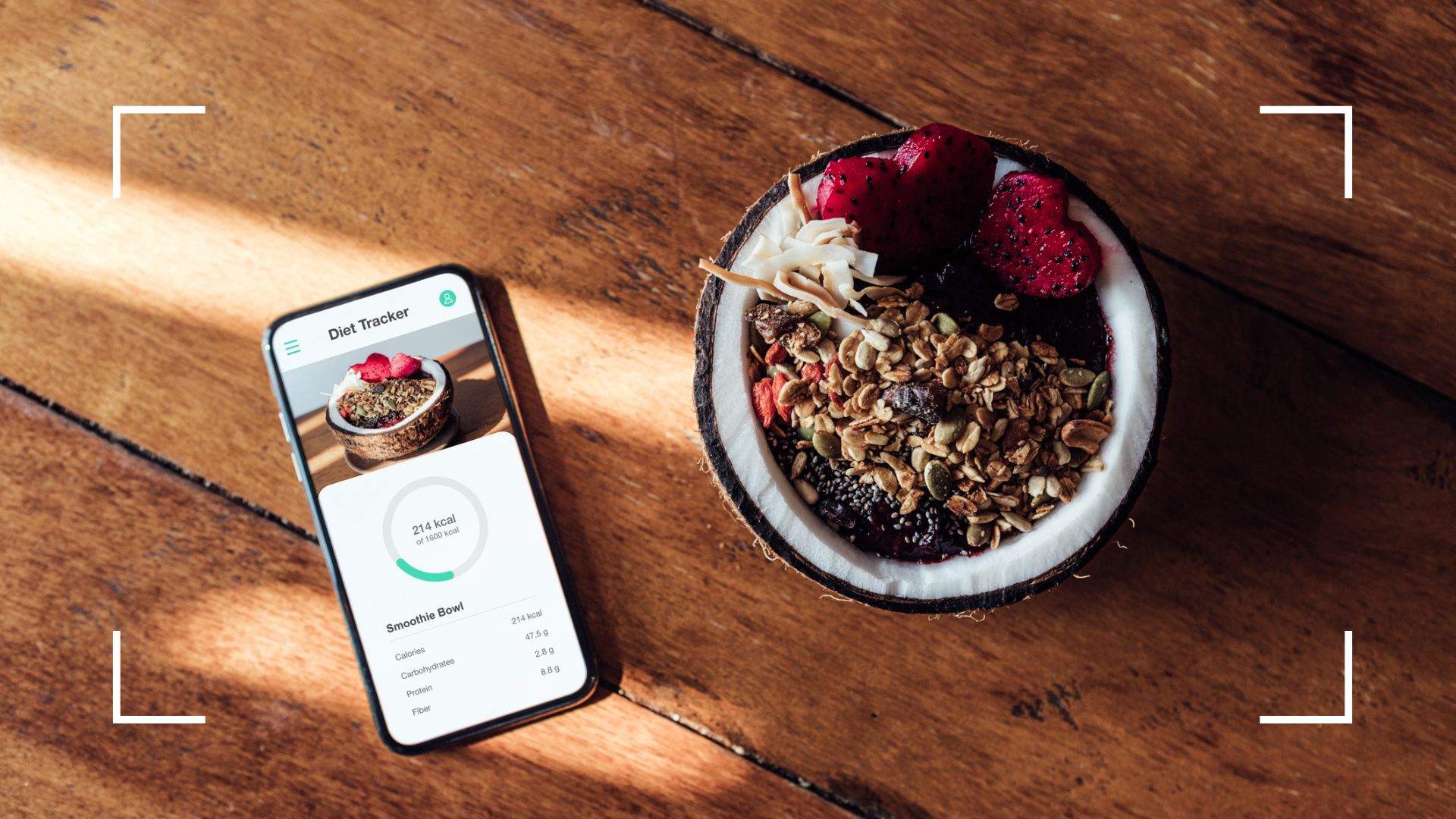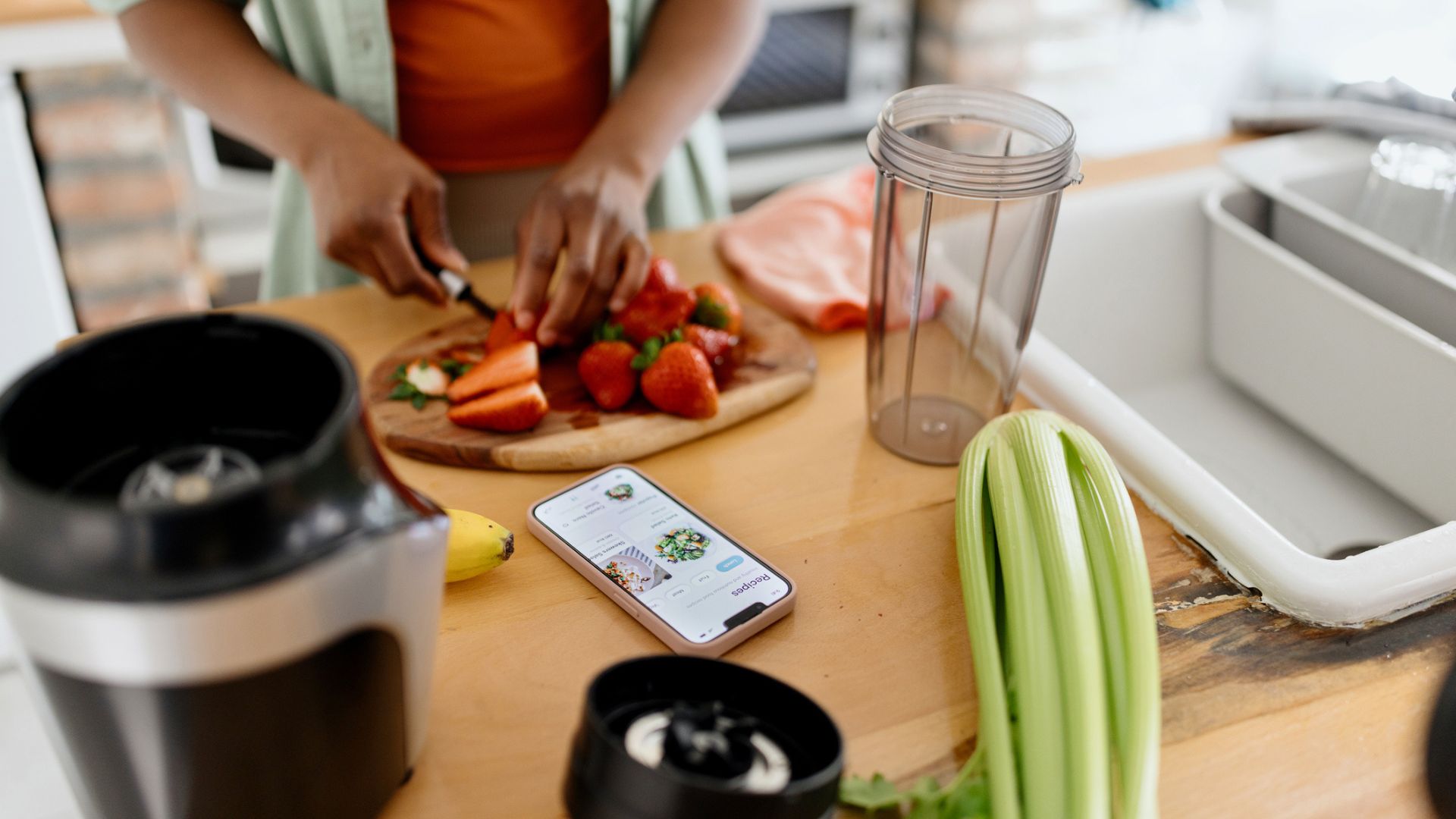
How many calories should I eat in a day? It's a question often asked by those looking to lose weight sustainably, given the ever-present number of diets that promote cutting calories to very low levels.
Despite what many of these diets suggest, calories are not actually a negative thing - they're simply a unit of measurement for energy in food and drink - and everyone needs a good amount of this energy to keep moving through the day. No one should be pressured into changing their weight in any way and for those who aren't interested, calories may not be so important.
But anyone who is looking to lose weight or gain weight healthily likely will be interested in learning how calories affect this, how many of them they should eat depending on their goals and exercise levels, and the best ways to monitor how many calories they're eating to avoid dieting but not losing weight. Here, we've spoken to a nutritionist to reveal the answers to all these questions, explain the factors that play into them, and more.
How many calories should I eat in a day?
Women should eat approximately 2,000 calories a day, per recommendations from the NHS and the US Department of Agriculture's dietary guidelines. However, this number is very individual and depends on numerous factors such as age, height, weight, activity levels, and whether you want to lose, maintain, or gain weight.
As certified nutritionist Signe Svanfeldt says, "For example, the larger the mass [of the person], the larger amount of energy [calories] required to keep the body moving, which is why someone who is tall and weighs more needs more energy than someone who is shorter."
Current body composition plays an important role too, she adds, since muscle requires more energy than fat and so those with a greater muscle mass will need more energy than those with less. As we get older though, our muscle mass begins to decline and the distribution of fat naturally increases, which is why it's important that those who are older focus on a diet of more protein-based foods and why they don't need as many calories as someone younger.
"And, naturally, the more we move in our everyday life as well as how much we exercise determines how much energy we need," says Svanfeldt, who is also the resident nutritionist at healthy eating app Lifesum, one of the overall best health apps as reviewed by woman&home.

What are calories?
Calories are the unit of measurement used to refer to the amount of energy in food and drink. They are often listed on nutrition labels by their acronym 'kcal' and everyone needs a certain number every day to keep their body's vital processes moving.
"Not all calories are the same though," explains Svanfeldt, pointing out that while 100 calories of carrot is much the same as 100 calories of chocolate, how it affects the body is very different. As research from the University of São Paulo reveals, different foods have a different impact on our hunger levels and appetite hormones, with those high in saturated fat and sugar tending to spike our hunger hormones, meaning we feel hungry even when we're not, and may eat more.
However, it's important to recognize that any food item, including those high in sugar and saturated fat, can be enjoyed as part of a healthy diet. It's important to have balance and as studies by the University of Toronto show, restricting your favorite foods regardless of your goals is only likely to lead to eating more of them down the line.
How many calories should I eat in a day to lose weight?
To lose weight, you need to be in a calorie deficit, otherwise known as an energy deficit. Research from the University of Colorado suggests that a deficit of 500 - 600 calories per day can lead to just over 1lb (0.5kg) of weight loss per week, adding up to over 4lb (2kg) per month.
However, this is only likely to be effective in the first few months. After this time, many people find they are not losing weight in a calorie deficit as they hit a plateau. So, it may be better to opt for a smaller deficit and work your way up, if you want to. By the same logic as above, eating 200 - 500 calories below your maintenance calorie intake will be enough to lose weight without dieting excessively.
If you're looking to know how many calories you should eat in a day to lose weight, you'll need to work out your maintenance calorie intake and deficit using a calorie calculator.

How many calories should I eat in a day with exercise?
If you're exercising regularly, the number of calories you should eat in a day will increase, but this number differs for every person. Exercise burns calories, which is beneficial if you're looking to lose weight, but we also need calories to exercise. Without enough, it's unlikely we'll finish the session feeling good (or at all).
That being said, many people naturally eat more anyway when they are working out often, says Svanfeldt. "If we are already in a calorie deficit and do a heavy workout where we burn even more, our feelings of hunger can increase and the deficit can be too large to sustain for a period of time." This leads to more eating, which isn't a problem as the body is craving this extra energy for a reason, but it could be counterproductive for those looking to lose weight healthily as too many extra calories will lower or cancel out the deficit.
"[It's one of the reasons why] it's important to think about not having a too large energy deficit, as this risks getting too little energy and few nutrients," the nutritionist adds.
This is particularly a problem with cardio exercises like walking, cycling, and running for weight loss, she adds, so "it can be more helpful to vary the exercise and make sure you involve more strength training as well."
Tips for monitoring your calorie intake
- Check portion sizes: There are some foods that we tend to eat more of than others, like cereal. If you're looking to lose weight, it's always worth checking the nutritional label on the back of the food packet to see the recommended serving size. This is often linked to the number of calories the food provides too.
- Use a tracker: The easiest way to work out how many calories you're eating every day is through one of the best calorie counter apps. While they won't be suitable for everyone, apps like these can allow you to record all of the calories you're eating during the day, helping you keep an eye on your intake.
- Remember to record everything: While the calories listed on the back of food nutrition labels are allowed (legally) to be a little above or below what's written, recording everything you eat via a journaling app or calorie counter app will be the best way to get a clear picture of your intake. That means any milk or cream that's added to coffee, alcoholic drinks, and condiments like salad dressings.
- Focus on weekly calories, rather than daily: If you're like most people and how much you eat tends to differ by the day (e.g. you eat more at the weekends than during the week), counting up your total intake for the week may be a more realistic way to successfully stick to a certain number. To find the number to aim for throughout the week, simply multiply your daily suggested intake by seven and try to meet this by Sunday evening.
- Consider how many calories you're burning: The number of calories you eat per day will also change based on how much exercise you're doing, so it's important to take this into account too, and allow for more calories on the days you're working out to fuel your body. However, avoid trying to eat as many calories as your fitness tracker has said you've burned, since this is rarely correct.
How to know if calorie counting is for you
Counting calories, no matter what your goals are when it comes to your weight, won't be for everyone and it's not an essential to meet any goal. For those with a complicated relationship with food or a history of disordered eating, Svanfeldt warns that calorie counting may not be suitable.
"If you feel like you might be at risk, it’s important that you contact your doctor so you get the support and advice needed," she says.







